
Lessons in Indigenous history and health
On the southern tip of James Bay, on an island in the middle of a river sits Moose Factory. Largely inhabited by people of the Moose Cree First Nation, Moose Factory sits in the Moose River, across from the mainland community of Moosonee. The area is over 850 kilometers north of Toronto although there are no roads that take a traveler this far north, except in the winter when the lakes freeze over.
Celine Huab, Rx2022, flew into Moosonee in September 2020, ready for a co-op work term unlike any other. The experience was organized by NorthWest Telepharmacy Solutions, a company that provides pharmacy services in remote Canadian communities.
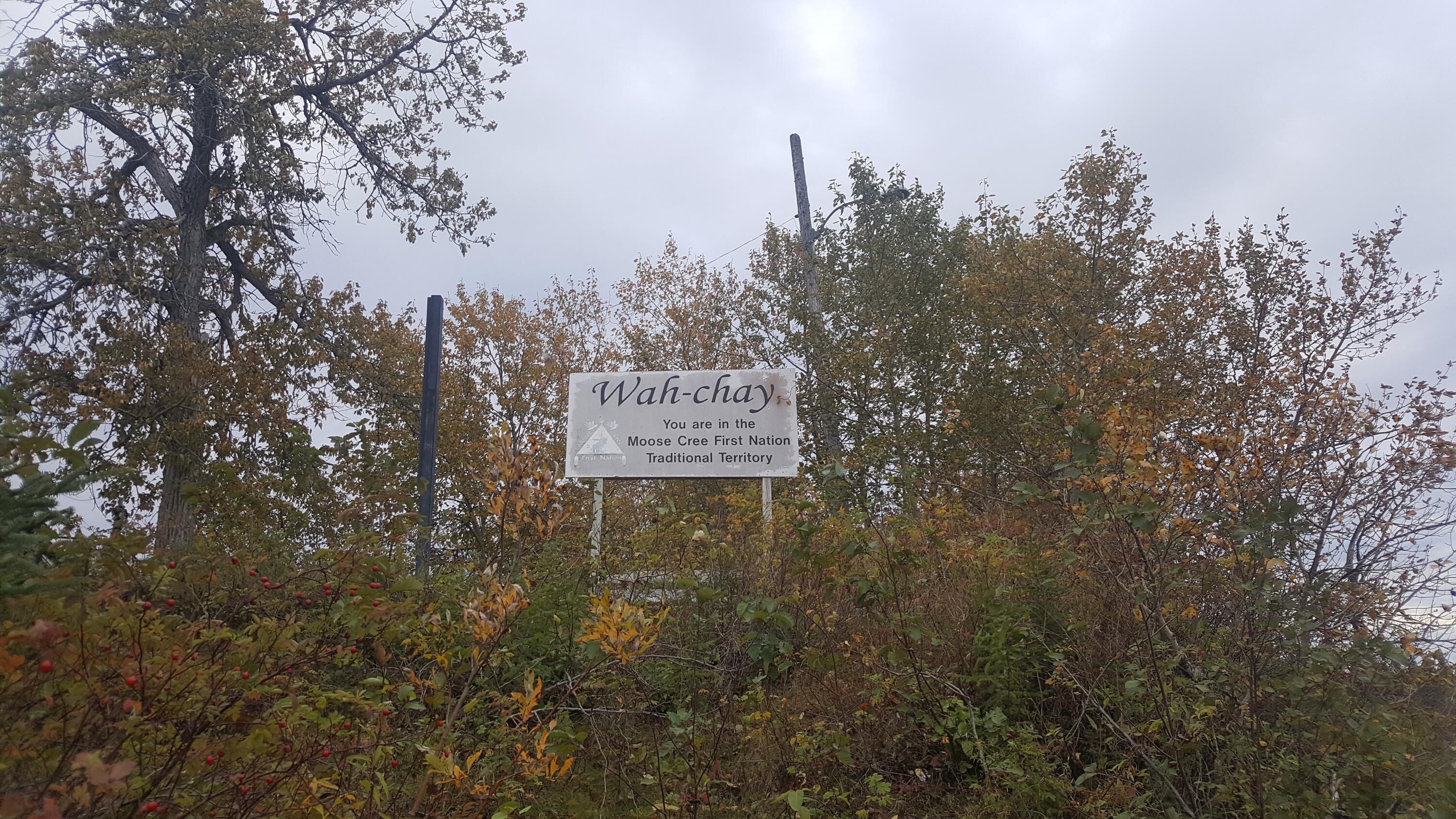
“This is a sign at the hospital docks of Moose Factory which was a constant reminder for me to remember that I live on borrowed land, and to respect both the land and the First People who lived on it before me,” Celine says. “Wachay means hello in Moose Cree.”
“Taking the job in Moosonee was the hardest decision I made last year,” Celine says. “The weather, the remoteness, not knowing anyone and being the only pharmacy student in town – I truly didn’t know what to expect.”
Born in Manila, Philippines, and raised in the GTA, Moose Factory was easily the smallest community Celine had lived in. Add to that the challenge of being the first pharmacy co-op student to work in the area, and Celine was in for an eye-opening term. Her co-op term was split between work sites. On the mainland in Moosonee, she worked in a community pharmacy in the Northern Store, the town’s only grocery store. And on the island, she joined the team at the Weeneebayko General Hospital.
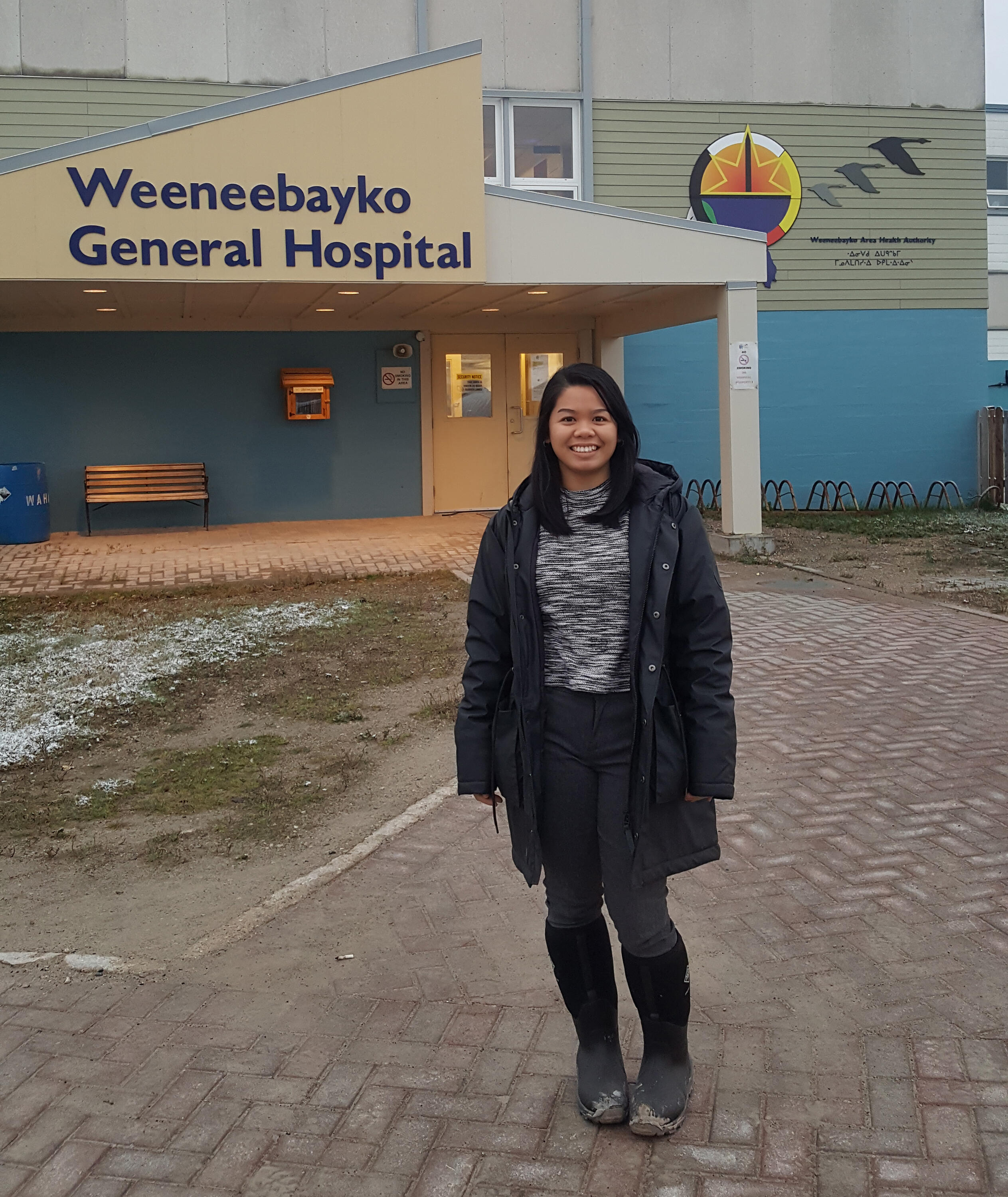
“As I was getting ready for the work term, I realized there I really didn’t know how to properly serve Indigenous community in culturally appropriate way,” Celine says. “I went through lots of presentations, down the rabbit hole of research, and worked hard to address this gap on my knowledge.”
Many of the lessons she learned were more practical, gained from her coworkers and friends she made in town. Whether it was lunchtime chats learning Cree from a coworker at the pharmacy or exchanging stories of families and histories with technicians at the hospital whose families were impacted by the Sixties Scoop, Celine made sure to listen attentively.
“I never tried to pry into anyone’s experiences, but I found that throughout the workday, many people were happy to share,” Celine says. “One thing I appreciated most about people in the community was the constant sense of humour. I saw how laughter could be its own form of medicine, and if you could put a good joke somewhere, you’d fit in pretty quickly.”
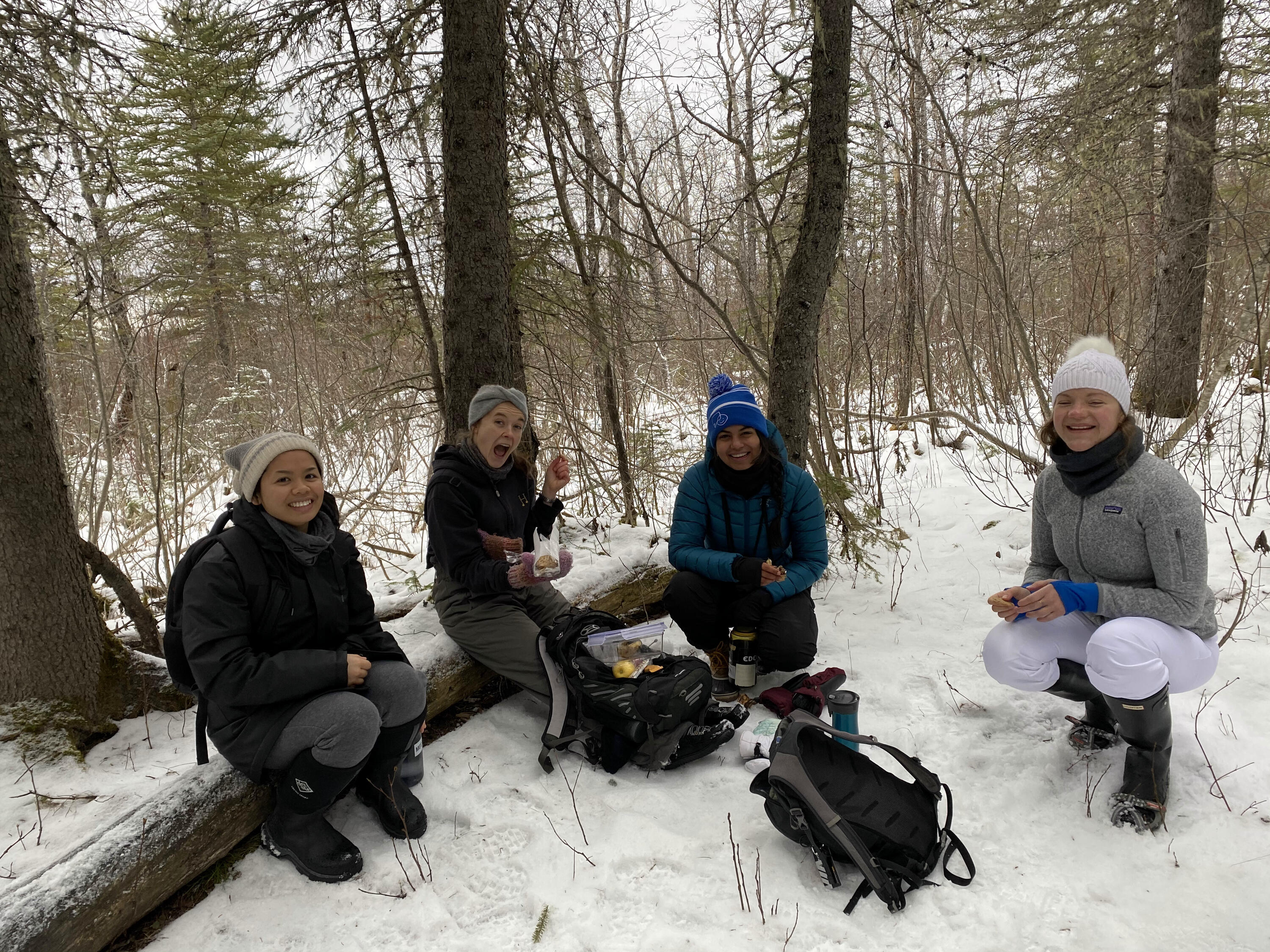
Celine on a hike with medical students she worked with at the Weeneebayko Hospital
In both the Moosonee pharmacy and the hospital, Celine experienced the reality of practicing health care in a remote area. The pharmacy serves not just the Moosonee area but also many of the First Nations communities in the surrounding areas.
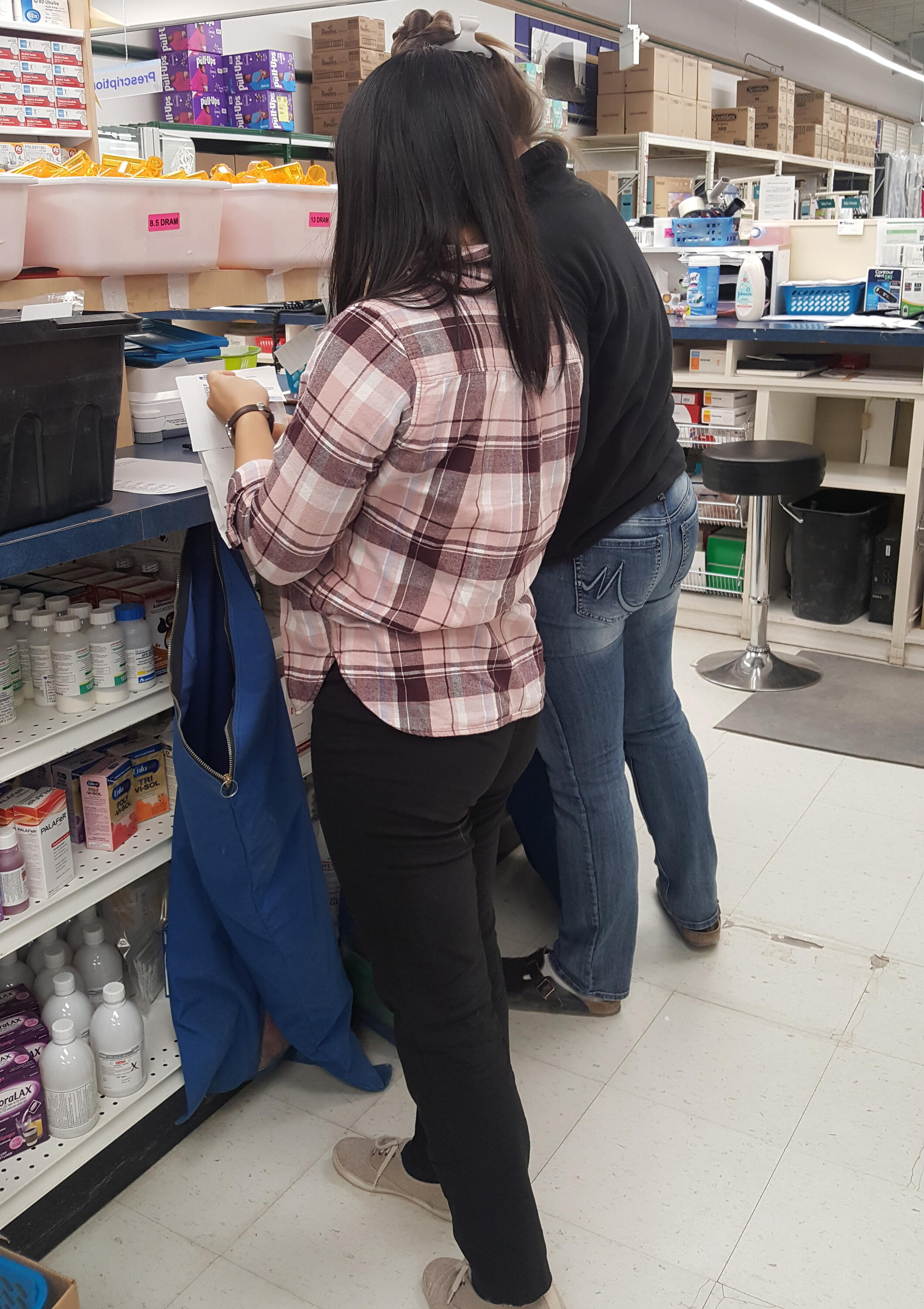
Celine loading bags with medications to be flown out to remote communities. Each bag is labelled with the name of the community.
“We’d prepare large bags of medications to be flown out to nearby communities,” she says. “Counselling on these medications was difficult. We’d call nursing stations in the recipient communities and relay what information we could. I learned to make the best of these conversations because I didn’t know when I’d be able to get someone on the phone again.”
Even Celine’s commute was unique. She lived in Moose Factory during her work term, and to get to work in Moosonee at the Northern Store, she had to take a boat across the Moose River.
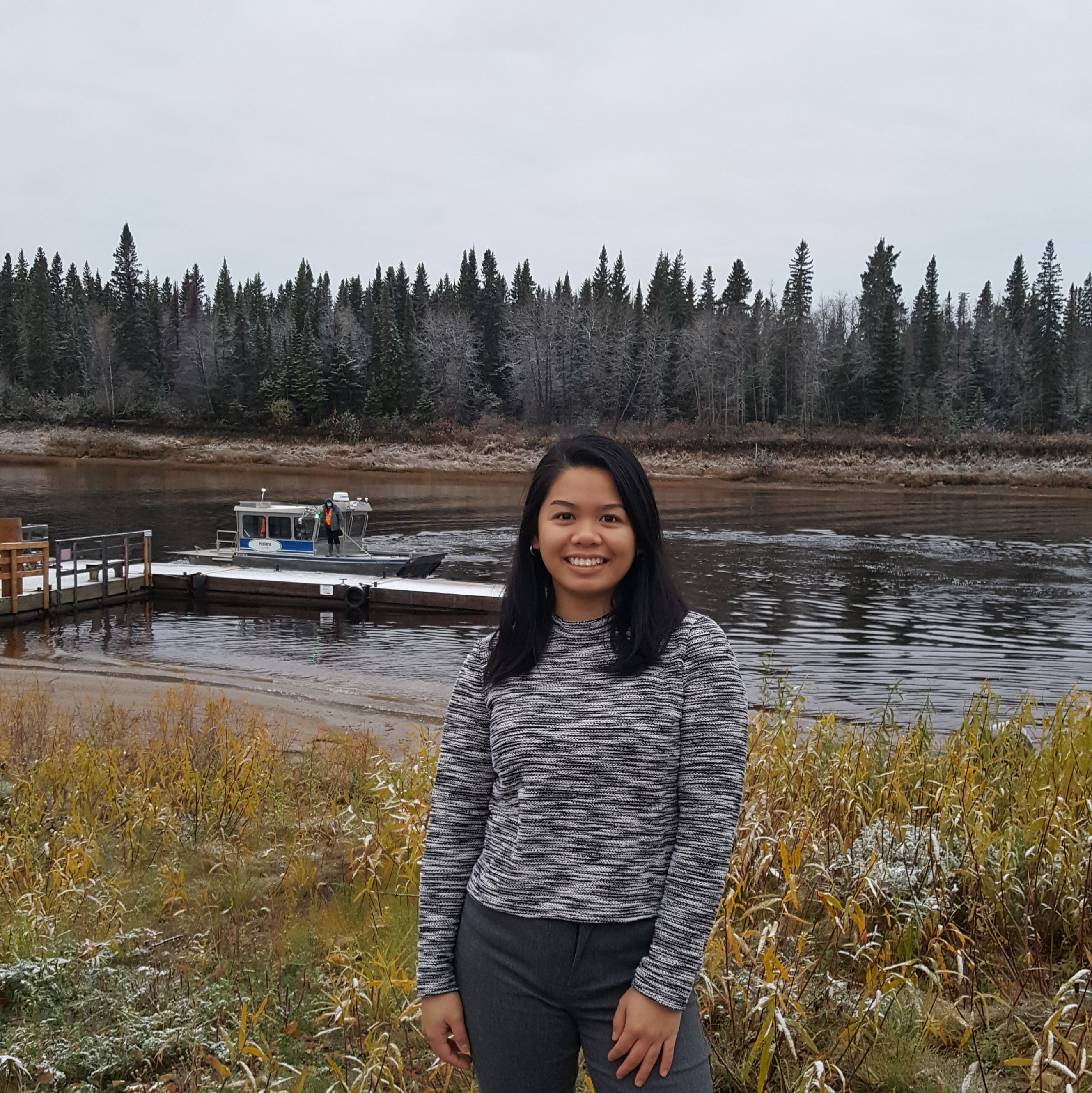
Celine at the Moose Factory docks. The boat behind her is one of the ones she’d take twice a day to get to Moosonee and back.
Celine’s days were split between the community pharmacy and the Weeneebayko Hospital. The hospital has no full-time pharmacist, and instead uses NorthWest Telepharmacy services to provide pharmacy services through videoconferencing. Like the community pharmacy, the hospital team serves both locals and people from surrounding areas, but due to the hospital’s size complex cases and even labour and delivery cases are flown out to Timmins or Kingston.
“At the hospital, I did medication reviews or provided input on the therapeutics to the other health-care providers,” Celine says. “But often I didn’t have the opportunity to meet patients directly. Many patients served by the hospital don’t have a regular family doctor: they have to wait for family physician to fly into their communities or fly down themselves to see a specialist. Unfortunately, they often have to wait months for these appointment dates.”
As the work term progressed, Celine began to carve out a role for herself. In the remote community, the impact of COVID-19 was rarely felt, though if there was any potential for cases, the community immediately shut down. Looking back on the experience, Celine sees it as one of both professional and personal growth.
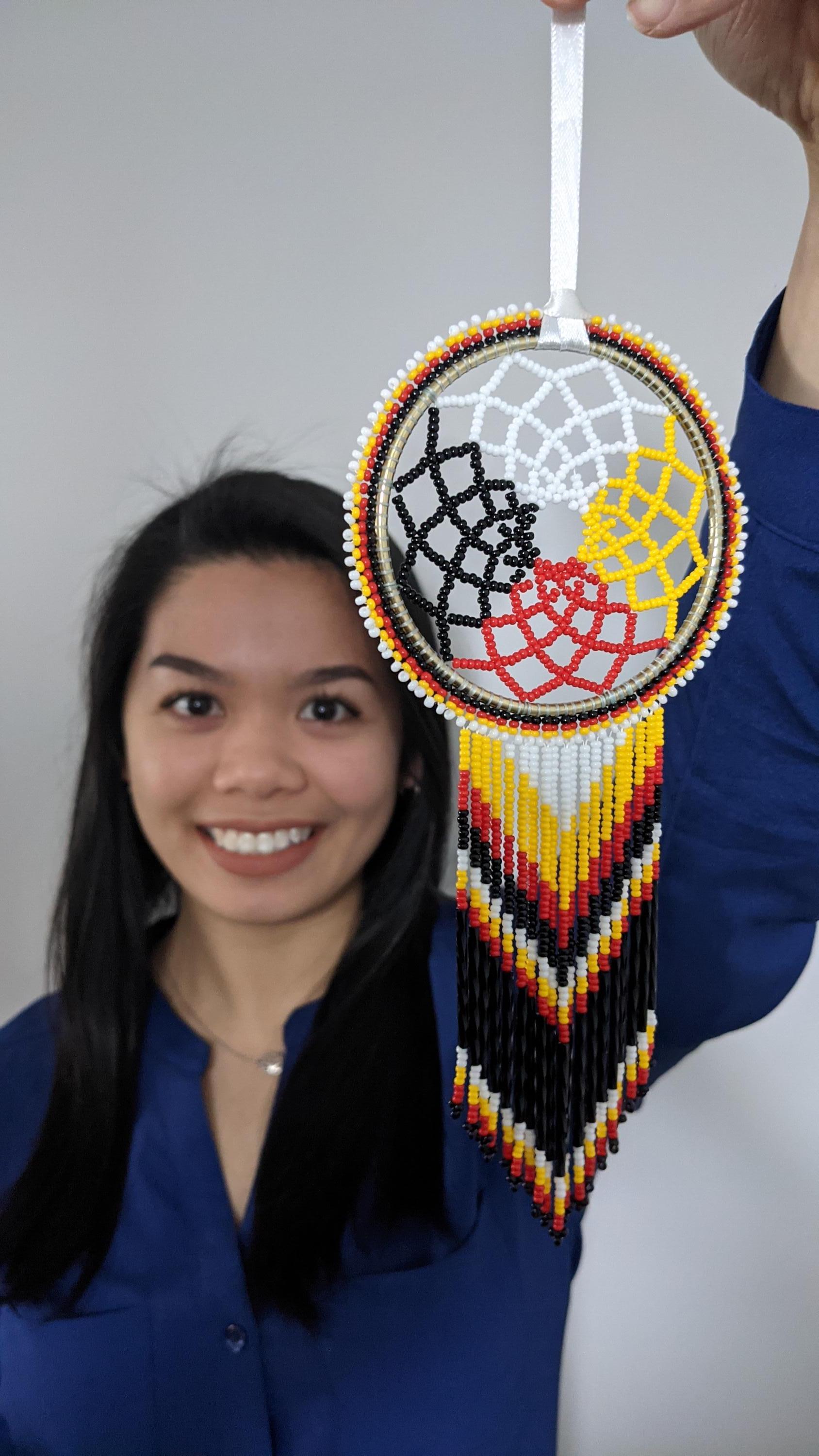
“One thing I want everyone to understand is that you can’t separate Indigenous history from Indigenous health,” she says. “You need to consider your patient’s history, their ancestor’s history and all the ways that that will impact how you should provide care. I think doing this as health-care providers will help humanize us and ultimately lead to a better experience for everyone.”
Celine with a beaded dreamcatcher depicting an Indigenous medicine wheel. Celine says: “I bought this dreamcatcher in Moose Factory from a local artist named Maribeth. It reminds me both about my time in Moose Factory and also about holistic health through an Indigenous perspective: mental, emotional, spiritual, and physical.”
To hear more, watch a video about Celine's co-op experience in Northern Ontario.